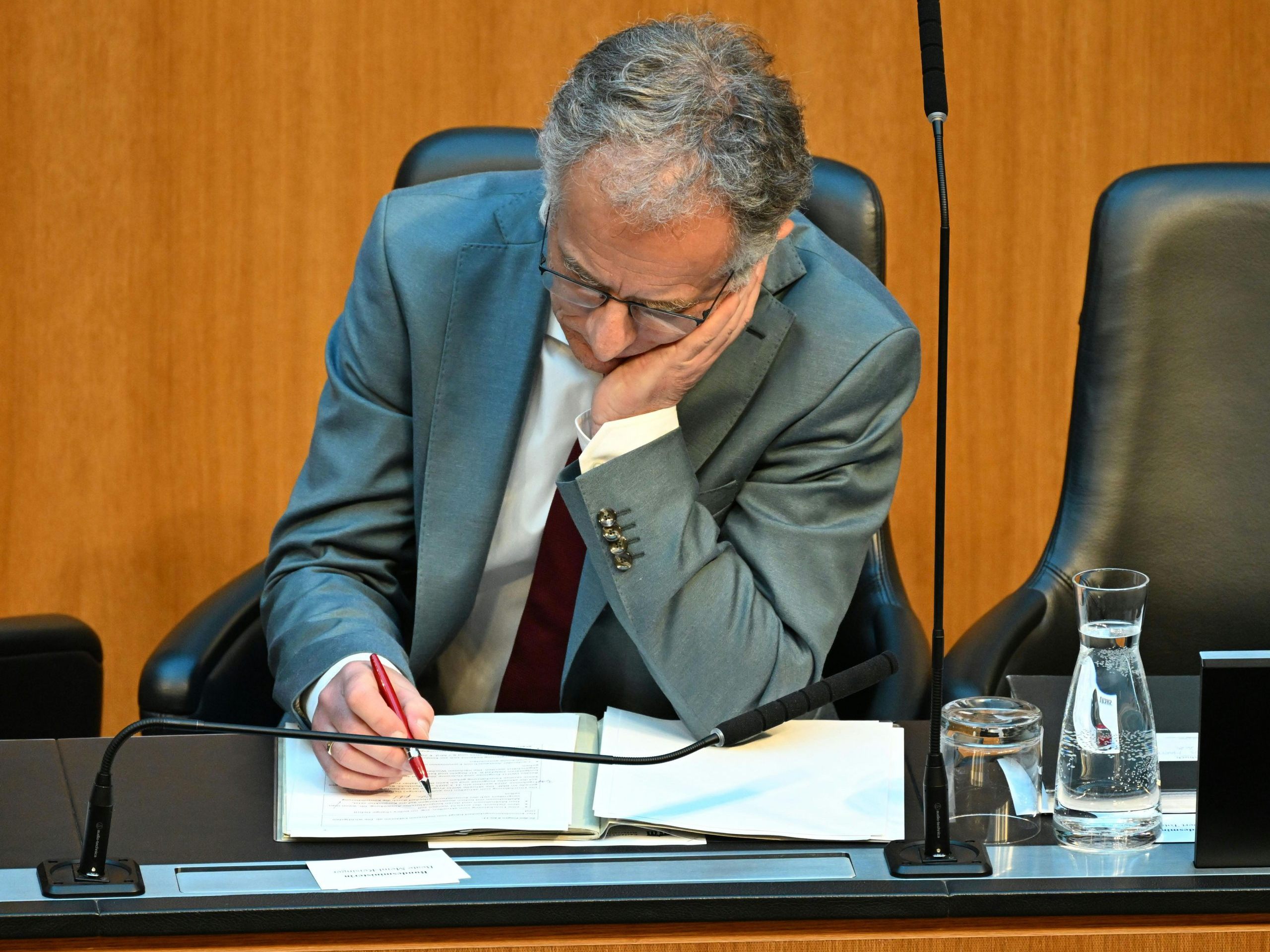Fiscal Council Expects Budget Deficit of 4.4 Percent

The deficit will be higher this year than expected. A corresponding forecast was issued by the Fiscal Council on Friday. Accordingly, a deficit of 4.4 percent of GDP is expected for 2025, and a minus of 4.1 percent is anticipated for the coming year. According to calculations, the debt ratio will reach a historic high of 86.1 percent of GDP in 2026.
One of the main reasons for the pessimistic assessment is that the government, from the perspective of the expert panel, overestimates the savings measures. Finance Minister Markus Marterbauer (SPÖ), on the other hand, expressed confidence in achieving the agreed consolidation volume.
Forecast for Budget Deficit Changed
In the autumn forecast, the Fiscal Council had estimated the deficit for 2025 at 4.1 percent. The revised assessment is also related to the fact that the deficit last year was significantly higher than expected at 4.7 percent. In addition, there are reduced revenues due to the ongoing recession and the decline in expected economic growth for the coming year.
If the government's planned consolidation volume of 6.3 billion euros were fully implemented, the budget deficit would be 4.0 percent. However, the Fiscal Council does not believe that the measures taken will actually result in savings of this magnitude. Instead, they expect a volume of 4.2 billion euros. The budget experts also cannot nearly comprehend the 8.7 billion euros targeted by the government for 2026. They expect 4.9 billion euros from the savings package in the coming year.

On the one hand, the planned consolidation volume is not fully supported by individual measures. On the other hand, the savings potential of some projects is estimated to be significantly lower than expected by the government: This applies, for example, to the planned savings from the abolition of educational leave and the reduction of material expenses of the ministries.
Thus, the measures are not sufficient to compensate for the deteriorated budgetary starting position, writes the Fiscal Council. Possible additional consolidation measures based on the double budget announced for mid-May are not yet included in the estimate.
EU Deficit Procedure?
An EU deficit procedure will hardly be avoidable. To meet the Maastricht target of three percent of GDP, an additional consolidation volume of 8.5 billion euros would be needed, according to the Fiscal Council. Fiscal Council Chairman Christoph Badelt considered such an increase to be not very sensible economically, as the country is in a recession. Consolidating even more would likely add fuel to the recession, he said in the Ö1 "Mittagsjournal".
The debt ratio is expected to reach a historic high of 86.1 percent next year after 84.7 percent this year. The current highest value dates back to 2015 and amounts to 85.6 percent of GDP.
The fact that the situation is now so difficult is due to generous spending in the past. The high inflation of the years 2022 and 2023 has delayed the expenditures for 2024, along with large packages of measures, including for climate protection and flood control, causing them to rise sharply, while revenue growth has already flattened. According to the Fiscal Council, the increase in expenditures was particularly large due to unexpectedly high health expenditures and one-off effects such as the implementation of the 2023 Civil Service Reform with a back payment of previous service periods for public employees.
The Fiscal Council's forecast is significantly more pessimistic than that of the National Bank. At the end of March, the OeNB estimated this year's deficit at 3.8 percent of GDP. For 2026, 3.3 percent was expected. However, the surprisingly poor result for 2024 was only published after this forecast by the National Bank.
Marterbauer commented
The government has not yet provided a forecast of how high the deficit will be this year. Finance Minister Marterbauer said on the sidelines of the Ecofin that the Fiscal Council had not taken all measures into account because they "are yet to come." In a statement, he specified that it was about savings in subsidies and expected higher revenues, for example from companies with state participation.
The savings in the administration of the ministries amounting to 1.1 billion euros in 2025 and 1.3 billion euros in the coming year are currently being detailed in the budget negotiations and backed with measures. The distribution to the ministries is carried out in such a way that the achievement of the savings is ensured.
In any case, efforts are being made consistently to achieve the consolidation volume agreed in the government program: "We are confident that we will succeed because all parties involved know that there is no way around saving." Furthermore, he sees "no necessities" for savings, Marterbauer explained before the meeting with his counterparts in Warsaw.
The NEOS once again made it clear that, from their point of view, the difficult financial situation also requires nationwide efforts - that is, from the federal government, states, and municipalities. Therefore, joint efforts are needed at all levels: "We need to look for potential savings within the system itself and initiate structural reforms," said Secretary General Douglas Hoyos.
Schwarz points towards states and municipalities
Green budget spokesman Jakob Schwarz was not surprised by the revised forecasts. Savings at the federal level alone would not solve the problem, he pointed towards states and municipalities like Hoyos. He also demanded an end to climate-damaging subsidies such as diesel and company car privileges.
The Freedom Party's economic spokeswoman Barbara Kolm feels vindicated that the federal government's consolidation is not worth the paper it is written on. The Fiscal Council clearly exposes that the announced savings measures are in fact pure wishful thinking. The costs for this "incompetence" will once again be borne by the taxpayer.
(APA/Red)
This article has been automatically translated, read the original article here.





